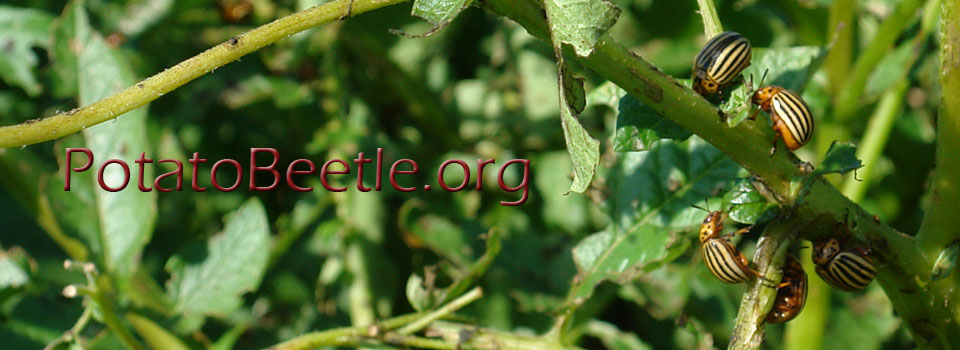Hussain T, Aksoy E, Çalișkan ME, Bakhsh A. Transgenic Res. 2019;28(1):151-164. doi: 10.1007/s11248-018-0109-7.
Most of the commercialized insect resistant transgenic crops express cry gene(s) isolated from Bacillus thuringiensis; however, intensive cultivation of Bt crops over almost two decades has been questioned regarding its sustainability and durability in pest management. The present study focused on silencing of highly specific molting-associated Ecdysone receptor (EcR) gene of Colorado potato beetle (CPB) using RNA interference (RNAi) approach. The partial cDNA of EcR gene of CPB was amplified using specific primers in sense and anti-sense orientations, and cloned in pRNAi-GG vector flanked by an intronic sequence (pdk). Leaf and internodal explants of Agria and Lady Olympia potato cultivars were infected with Agrobacterium strain LBA4404 harboring constructs under the control of CaMV 35S promoter. Standard molecular analysis of primary transformants showed proper integration of T-DNA in plant genome. The transgenic plants of both cultivars were evaluated for their efficacy against first, second and third instar CPB larvae. The leaf biotoxicity assays revealed 15-80% of CPB mortality. A significantly lower fold-change (0.87-4.14×) in larval weight was observed in insects fed on transgenic plants compared to the ones fed on control plants (1.87-6.53×). Furthermore, CPB larvae fed on transgenic plants exhibited reduced EcR transcripts, indicating the functionality of dsRNA EcR in silencing EcR gene expression. This study is an excellent example of the integration of an alternative, effective and reliable method to cope with potato insect pests that incur significant losses to potato production in the world.
